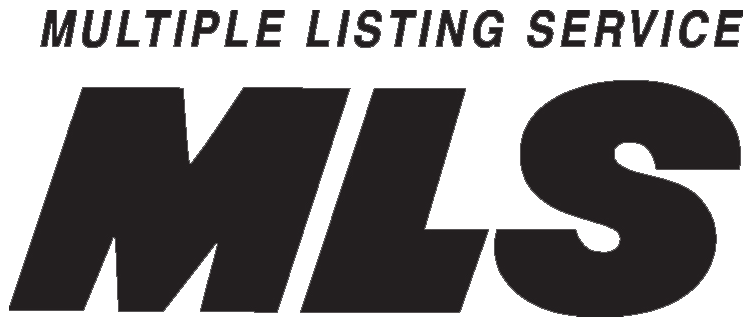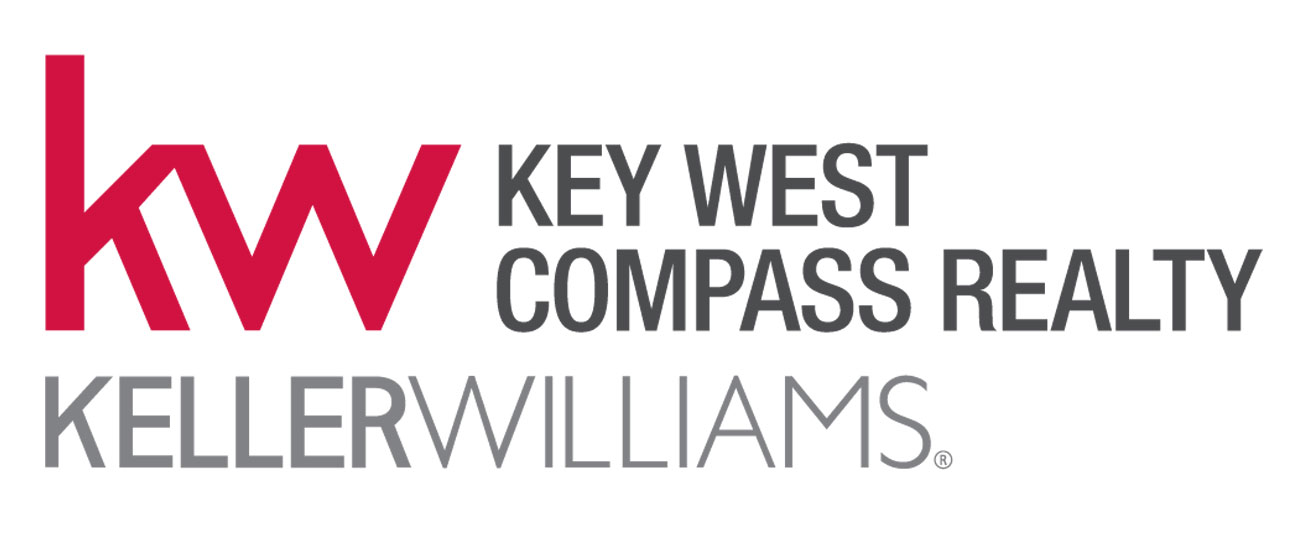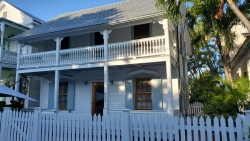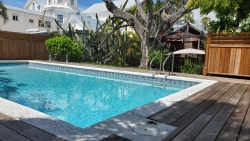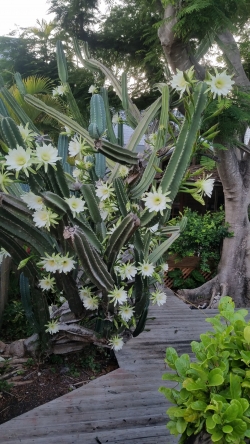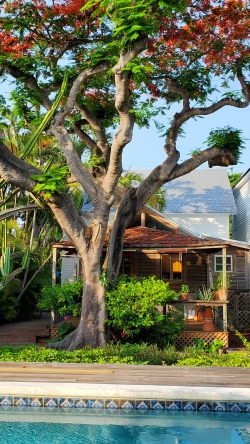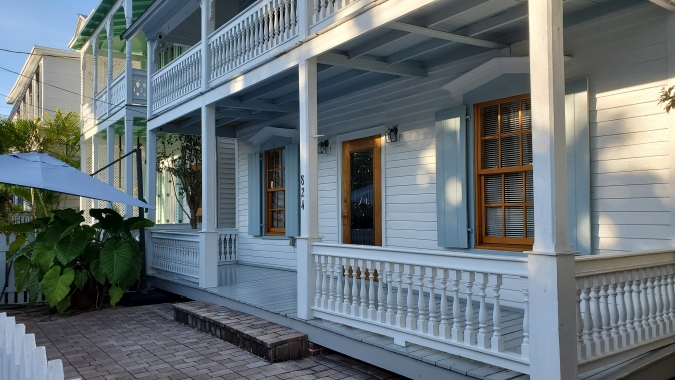In 1992, Florida voters approved Amendment 10 to the Florida Constitution (effective in 1995) known as Save Our Homes (SOH). SOH limits increases in the assessed value of a homestead residence to a maximum of 3% or the percent of change in the Consumer Price Index (CPI), whichever is less. Portability allows owners of homesteaded property to transfer, or “port,” up to $500,000 in SOH benefits from a previous primary residence to a new primary residence. Let's take a closer look ...
________________________________________________________________________________________
Prior to SOH, taxable value was equal to market value minus the Homestead exemption. When the market value increased, so would taxable value and therefore, property taxes. SOH uses the maximum 3% cap to control assessed value, regardless of how high market values may increase. SOH automatically rolls over every year until there is a change in ownership on the property.
Note: SOH does not control property taxes. Property taxes are controlled by millage rate. The millage rate is determined by local taxing authorities. Local taxing authorities raise or lower the millage rate as they determine what revenue is needed to support their local budgets and other obligations. In essence, millage rate times assessed value equals property taxes. For instance, Monroe County has one of the, if not the, lowest millage rates in the state of Florida but, because of high assessed values, property taxes collected in Monroe County are usually among the top 3 or 4 highest in the state.
Exemptions - What would taxes be without exemptions?
There are more exemptions and what ifs to SOH then ten times ten the number of colors in a Florida rainbow. Here are a few of the biggies:
- Assume you are not a Florida resident and you buy a home in Key West anytime in 2022. You apply for Homestead Exemption before January 1, 2023. Your exemption begins in 2023. Remember, in order to receive the Homestead Exemption, you must be a Florida resident and the home you just bought must be your primary residence. How to become a Florida resident? See here.
- You must apply for Homestead Exemption in person. Call the Appraiser's Office to make an appointment. Their phone number is 305.292.3420. The office is located at 500 Whitehead St., Key West. A variety of documents are required. See here. Have patience.
- Since you were not previously a Florida resident, the assessed value of your new home is going to be pretty close to the amount you paid for it. Thereafter, as long as you maintain your Florida residency and keep this home as your primary residence, your assessed value will conform to the 3% cap rule.
Save Our Home (SOH) Benefit
Over time a gap will grown between your home's market value and its assessed value. This difference is known as the SOH Benefit or "cap". In an accelerating market, such as what we have had 2020 to 2022, this cap will grow significantly.
During a market downturn the cap will shrink, but only because the market value shrinks. Rarely is there a measurable reduction in the assessed value. Even in prolonged real estate downturns, such as during 2005 - 2010 in Key West, assessed values hold mostly steady. If dwelling value goes down, then land value goes up with a net result of minimal change in assessed value. Plus, despite economic downturns that hurt the private sector, like Pandemic 2020-21, the tax-based payrolls for police, teachers and schools and government officials, do not shrink; therefore, steady assessed values must be maintained.
So, other than containing property taxes for Homesteaded property owners, what does this SOH Benefit do for the homeowner? The SOH Benefit (Cap) is like money in the bank. For instance - should a Florida resident sell one Homesteaded property and then buy or just move to another Florida property with the intention of Homesteading that new property, the Cap becomes portable; that is, the Cap can be applied to that new primary residence.
Portability
Portability is the process of porting; i.e., carrying, the Cap accrued on a Homesteaded primary residence to another primary residence that will also be Homesteaded. The maximum amount of Cap that can be ported from one property to another is $500,000. In the November 2020 election, voters approved to expand the portability window from two to three tax years
Suppose a young couple bought a small cottage ten years ago as their first home but now, with 2 kids and a 3rd on the way, they need a bigger home. Assume there is $300,000 Cap/Gap between the assessed value and the market value of their small cottage. They buy a new home for $800,000. When they go to their local appraiser's office to apply to Homestead their new property, the $300,000 Cap will be deducted from the $800,000 market value of their new home, resulting in an assessed value of $500,000. Property taxes will be based on this $500,000, minus any exemptions. That's portability.
Their new home will then resume the 3% cap rule from a starting point of $500,000.
If this couple kept their small cottage to be used as rental property, Homestead stops on the rental property. If the couple sold their small cottage, the Homestead stops and the new Buyer/Owners must apply for Homestead, assuming they plan to use the small cottage as their primary residence. Homestead cannot be transferred from the previous owner to the new owner.
Downsizing
Suppose a family lived in a large house that they Homesteaded and also owned a small beach house that they used as a get away that was not Homesteaded. The kids all move out so Mom and Dad decided to change their primary residence from the large house to the beach house. No problem. (Let's assume the large house has a higher market value than the small beach house).
Porting any SOH Benefit (Cap) from the large to the small house is done proportionally; that is, if the Cap on the big house was 20% of the market value, then the amount of the Cap that can be applied to the beach house is 20% of the market value. The ability to change Homestead is not impacted. You do not have to buy new property in order to change Homestead. You need only to make notice that your primary residency has changed from one property to another.
Situations such as death of spouse, divorce, two persons joining their individual Homesteads and Caps into a single Homestead and Cap, etc., are too individualized to cover here. Please visit your CPA or real estate attorney.
Conclusion
The benefits of Homestead and SOH Benefit/Cap are significant. They are designed to encourage home ownership and establish your primary residence in Florida. They also allow for buying/moving up, downsizing and staying flexible as lifestyles change.
For Buyers - be aware that when you view "Taxes paid" in MLS listings or on Zillow or on property printouts you receive from from you Realtor. Very often the taxes shown are NOT going to be your taxes. Invariably those are Cap property taxes from a Homesteaded property. Make sure you calculate what YOUR taxes will be after purchase. The difference could be significant.
If you have any comments or questions, please contact me here.
Good luck!
Additional Sources:
